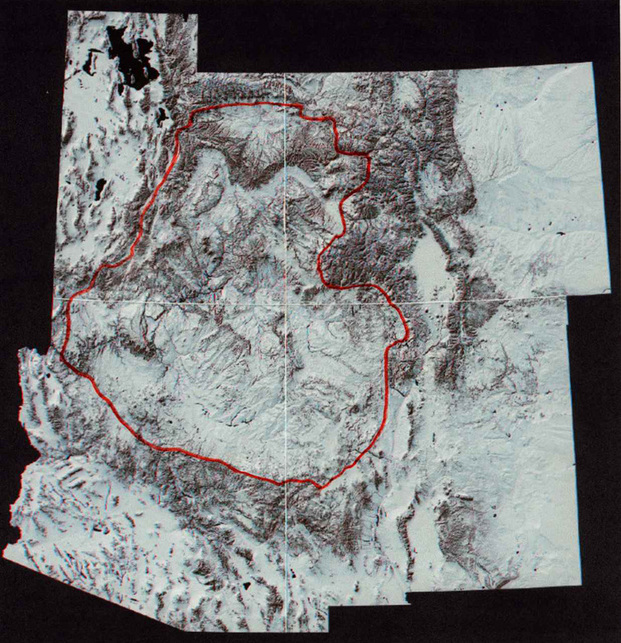Mapping the Information Ecosystems of the Colorado Plateau
|
Research + GeoSpatial Mapping + Drawings + Photographs + Narratives + Web Site A grounded environmental arts/sciences project, complementing other area ‘natural resources’ mapping and processes, is beginning to inventory, map, assess and present understanding of the ‘communications and information ecosystems’ of the Four-Corner states Colorado Plateau. This is a new work-in-progress. Please stay tuned for project and web site updates. 11.23.2014 RL |
|
Our greatest local-global ‘Grand Challenge’ is to develop ‘an ecological unified field theory’, integrating physical, biological, environmental, information, social and economic processes, to move our understandings, intents and actions towards the most challenging, yet ultimately most important humane goals of our networked contemporary society: ‘demosophia’ (people wisdom).
We cannot address the critical issues of changing climate, water, energy, food or health, without better understanding the dynamically integrated matter-energy-information environment, and for our need to take “steps toward an ecology of mind”.
1st-Mile Institute’s “Mapping the Information Eco-System of the Colorado Plateau”, is a new multi-year project. It is a personal extension of having prepared the New Mexico “Integrated Strategic Broadband Initiative” plan and report for Governor Richardson, in 2008, and having coordinated all federal Broadband Stimulus projects in the state, and with neighboring states, from 2009-13. These efforts and continuing work now provide access to greater public and private sector network infrastructure and services data, and community crowd-source processes, which have only begun to be used for eco-social or cultural benefit to date.
Relational geo-spatial data sets representing aspects of the information and communication environment will be added to currently available base layers (natural resources, population centers, tribal areas, primary infrastructure, socio-economic data, etc.).
A long-term objective of this project is to use more integrated information mapping as basis for regional ecological-economic modeling and decision-support. Information, like water, the air we breathe and the health of our children, is designated as an ‘intangible and externality’ by our dominant political-economic (the dismal science) systems. Such ‘common pool resources’ are the true determinants of quality of life. The flows of water, energy and of information are fundamental constituents of an ecologically based Earth Economy.
“Mapping the Information Eco-System of the Colorado Plateau” is intended to augment other Four Corners regional ecosystem research, assessments, mappings, learning and decision-making initiatives, providing emergent patterns for interactions and interventions.
We cannot address the critical issues of changing climate, water, energy, food or health, without better understanding the dynamically integrated matter-energy-information environment, and for our need to take “steps toward an ecology of mind”.
1st-Mile Institute’s “Mapping the Information Eco-System of the Colorado Plateau”, is a new multi-year project. It is a personal extension of having prepared the New Mexico “Integrated Strategic Broadband Initiative” plan and report for Governor Richardson, in 2008, and having coordinated all federal Broadband Stimulus projects in the state, and with neighboring states, from 2009-13. These efforts and continuing work now provide access to greater public and private sector network infrastructure and services data, and community crowd-source processes, which have only begun to be used for eco-social or cultural benefit to date.
Relational geo-spatial data sets representing aspects of the information and communication environment will be added to currently available base layers (natural resources, population centers, tribal areas, primary infrastructure, socio-economic data, etc.).
A long-term objective of this project is to use more integrated information mapping as basis for regional ecological-economic modeling and decision-support. Information, like water, the air we breathe and the health of our children, is designated as an ‘intangible and externality’ by our dominant political-economic (the dismal science) systems. Such ‘common pool resources’ are the true determinants of quality of life. The flows of water, energy and of information are fundamental constituents of an ecologically based Earth Economy.
“Mapping the Information Eco-System of the Colorado Plateau” is intended to augment other Four Corners regional ecosystem research, assessments, mappings, learning and decision-making initiatives, providing emergent patterns for interactions and interventions.
